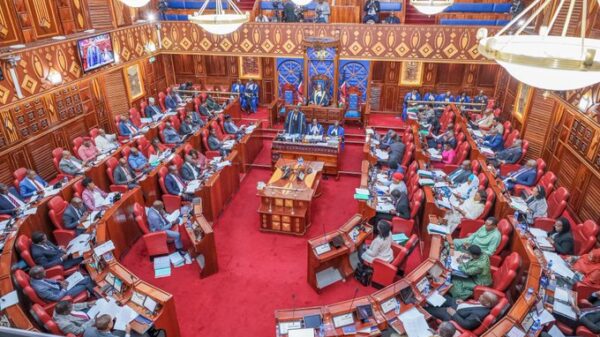Kenya has a new Senate Health Committee, but the same old disregard for public input persists.
Despite a recent reshuffle that ushered in new members, the Committee’s leadership has refused to reopen public hearings on the Tobacco Control (Amendment) Bill, 2024. This decision undermines not only democratic process but also public health.
It’s a slap in the face to millions of Kenyan smokers, harm reduction advocates, and public health experts who have a stake in this legislation. While the previous Committee held hearings, many of those who participated are no longer serving. Meanwhile, several current members were never part of the original discussions—yet they’re expected to pass judgment on a Bill with far-reaching consequences.
How can they make informed decisions without hearing from those most affected?
The refusal to hold fresh hearings is both reckless and undemocratic. This is not a minor technical amendment—it’s a piece of legislation that will shape the future of tobacco control in Kenya. Rather than ensuring that the new Committee is fully informed, the Chairperson has chosen to shut out stakeholders with real, lived experiences and evidence-based insights.
For years, Kenya’s approach to tobacco control has centred on prohibition, punitive taxation, and restrictions on safer alternatives to cigarettes. And what has that achieved?
- 12,000 Kenyans die every year from smoking-related diseases.
- 2.7 million Kenyans smoke, and despite tight regulations, two-thirds want to quit—but only 2% succeed.
- Safer nicotine alternatives like vapes and oral pouches—tools that have helped millions quit in other countries—are wrongly treated the same as cigarettes.
This Bill could have marked a turning point: a chance to embrace harm reduction and offer smokers a real way out. Instead, the Committee’s leadership has chosen to silence dialogue.
The science is clear: modern nicotine alternatives are significantly less harmful than combustible cigarettes because they eliminate the burning of tobacco—the root cause of smoking-related illnesses.
Countries like Sweden have nearly eradicated smoking by promoting safer alternatives. Today, Sweden boasts the lowest smoking rates in Europe—and correspondingly lower cancer and mortality rates. An independent review by the Cochrane Collaboration, one of the most respected global health research institutions, found that people who use vapes are more than twice as likely to quit as those relying on willpower or traditional cessation methods.
Kenya could follow this evidence-based path. But instead, our policymakers are acting as if the matter is settled—when in fact, they’ve refused to even listen.
I speak from personal experience. I struggled for years to quit smoking. It was only when I turned to safer alternatives that I managed to break free. If those products had been banned or made unaffordable, I might still be smoking—or worse, I might not be here at all.
The very products that helped me reclaim my health—and could save countless others—are now under threat due to outdated thinking and a refusal to hear new evidence.
If the Senate Health Committee is truly committed to public health, it must reopen public hearings on the Bill. Let all voices be heard. Let the latest science be examined. Let those who’ve walked this journey share what worked for them.
Anything less is a betrayal of the Kenyan people—and a guarantee of more preventable deaths.
The author is the Chairman, Campaign for Safer Alternatives (CASA)

















































